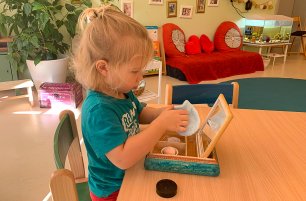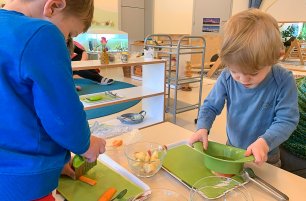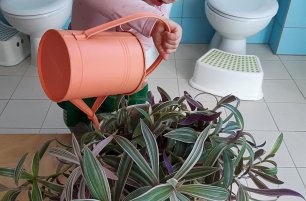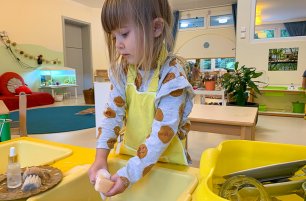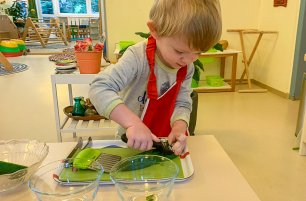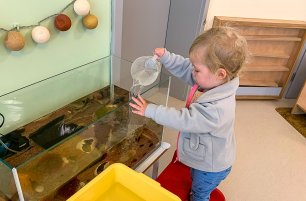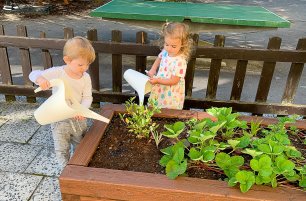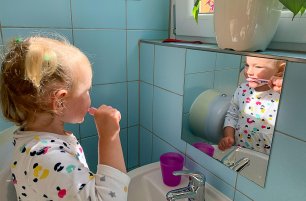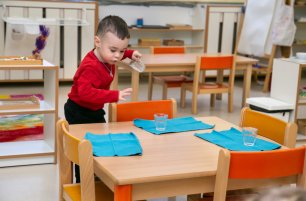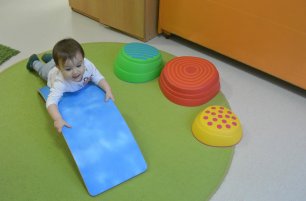Supporting Independence in the Toddler Child
In Montessori education, we often speak about independence. Helping raise children into confident adults is a priority for all of us – but why is independence so important and how do we nurture it in even our youngest learners?
“The greatest gifts we can give our children are the roots of responsibility and the wings of independence.” – Maria Montessori
Why is Independence Important?
Fostering independence from day one helps toddlers build self-assurance that they will carry for the rest of their lives. Our toddler friends are in the first plane of development, absorbing information from the environment around them and constructing their sense of self in response. When we show toddlers that we have confidence in them, toddlers begin to feel confident in themselves.

What Does Independence Look Like?
Independence looks very different at different stages of a child’s development. It is important to provide freedom within limits, creating an environment tailored to the child’s specific needs. Activities suited to a primary-aged child may not be appropriate for the toddler. In the earliest stages of development, independence means letting them assist (or take charge of) dressing, food preparation, plant and animal care, cleaning, and more. Toddlers have a strong desire for physical independence, often feeling confident that: “I can do it myself!”
How Do We Foster Independence in the Toddler Classroom?
In the Montessori toddler classroom, everything is intentionally designed in order to support independent learning. Students are allowed to choose what activity they’d like to focus on. However, options are organized ahead of time so that they are safe and appropriate for the toddler child. Providing freedom within boundaries tells the child that we trust them to learn at their own pace, and that they can trust us to provide what they need.
Providing the right tools means that the classroom itself must be very carefully prepared. The materials are placed in a sequential order, providing logic and support without adult intervention. Shelves and tables in the Montessori classroom are low to the ground so that children can select and participate in activities without assistance. Furniture in the Montessori classroom should never restrict or bind the toddler (think: no highchairs or playpens). Self-care areas are crafted to support independence in toilet-use and personal hygiene. Even the sleeping area allows room for autonomy, with low beds making it possible for students to get ready for bed and wake up on their own terms.
The job of the teacher, in this case, is to observe. The Montessori toddler teacher is trained not to intervene, but to listen and watch for signs that the child is ready to move on to the next step or lesson in a sequence. When speaking with the child, teachers make sure to avoid baby-talk so that students are exposed to and develop a broad vocabulary. Kneeling, using eye contact, and addressing by name ensures an empowering space for your child. Every inch of the classroom—from play, to care, to sleep, and more— is organized with respect for the independent child.

How Can We Foster Independence at Home?
You don’t have to be a trained Montessori teacher to incorporate some of these practices into your own home. Fostering independence can be as simple as switching your mindset—when your child wants to do something by themselves, let them! Show them patience, provide the appropriate materials, and observe as they complete tasks on their own.
Easier said than done, of course, so here are a few easy ways to practice this at home:
-
Allow your toddler to water the plants around the house
-
Let them feed the family pet
-
Have them bring their own dishes to the kitchen
-
Let them put their toys in the toy box.
-
Provide a child-size broom or mop so that they can help clean their own messes
-
Hang a mirror at their height so that they can clean their face or brush their hair.
-
Let them put their own shoes on or even choose their own outfits.
Worried about time? If you need to be out the door, plan ahead. Begin clean-up earlier, give your child an extra ten minutes to get dressed— make sure you and your toddler have the time needed to build independence.

Don’t Forget: Independence is an Ongoing Process
Maria Montessori taught us that “independence is not a static condition; it is a continuous conquest”. As your child develops, so too will their ability to make choices and complete tasks. Set the stage early and watch as your toddler takes on new challenges with ease.
By Anna Ritchie
Want to learn more? Read our next article:
